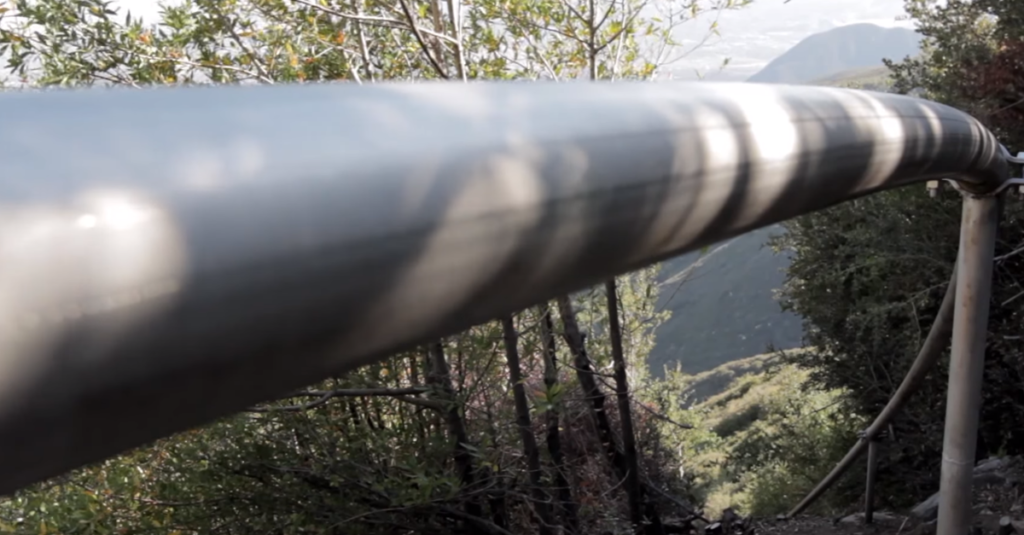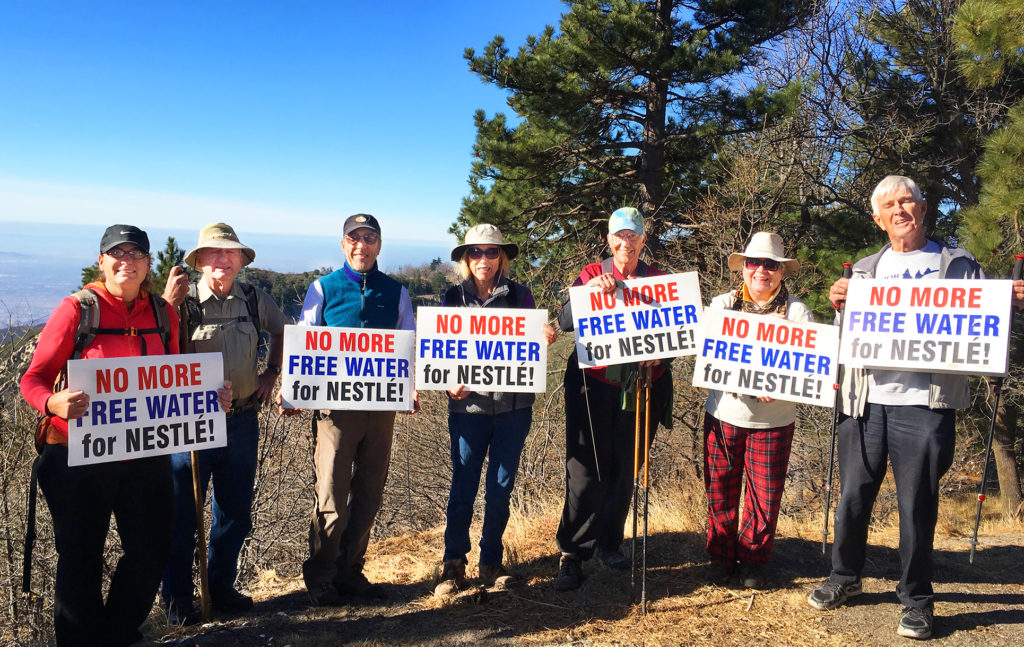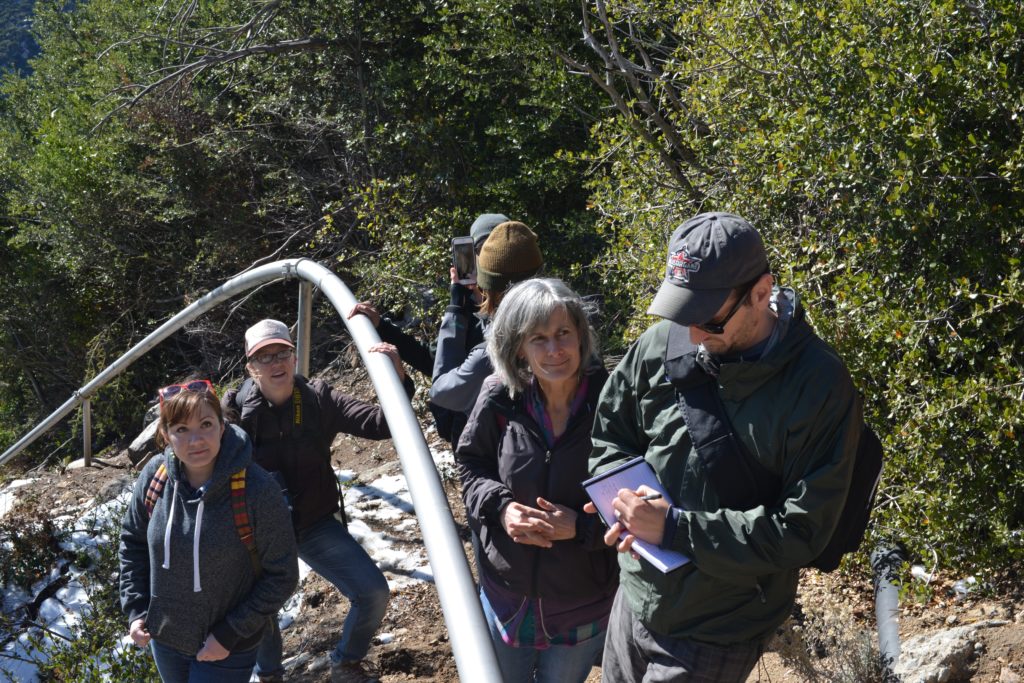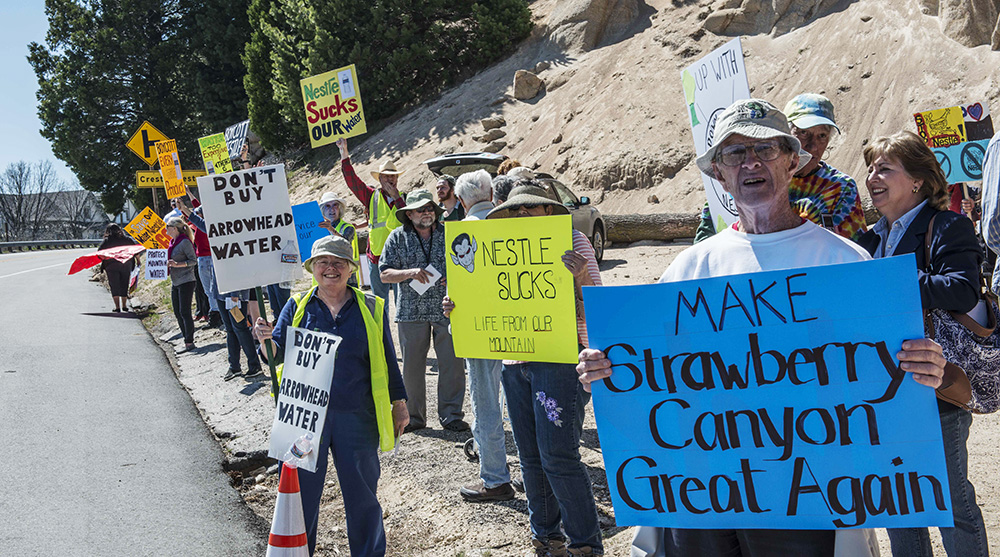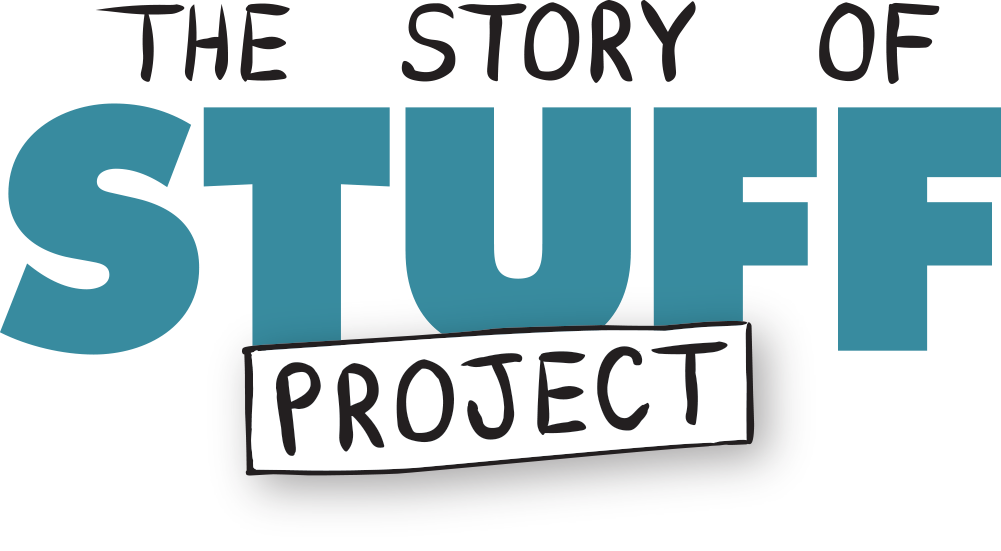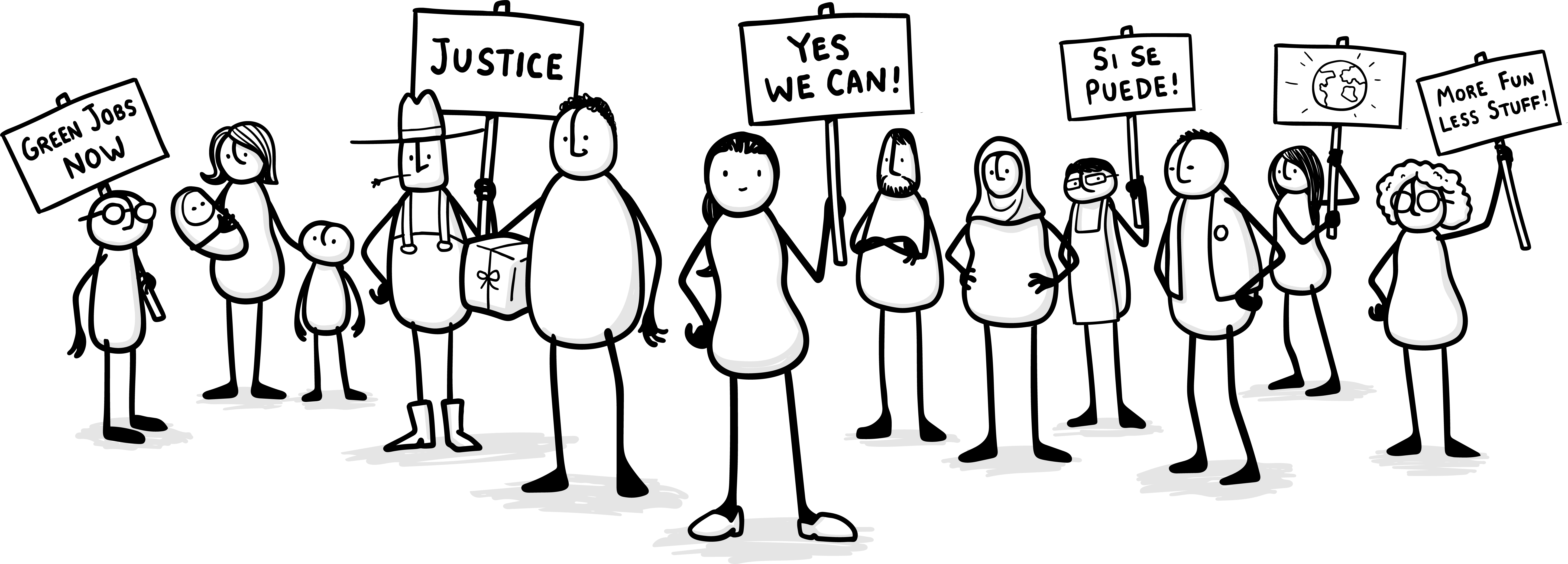Unbottle Water:
Unbottle San Bernardino
Nestlé exploits our natural resources by taking free water from national forest land and selling it in plastic bottles that pollute our environment. We’re working to stop it.
Why This Fight Matters
The Story of Stuff Project launched a campaign against Nestlé Waters in 2015 after learning that the world’s largest water bottling company had been taking water for years from public land in Southern California, without paying anything for it and without any monitoring or regulation. This case is an alarming example of how multinational corporations like Nestlé exploit fragile ecosystems for private profit – and it’s why we’ve been working with local groups to Unbottle San Bernardino and keep public water in the ground.
Movie: “This Land is Our Land”
This short documentary from The Story of Stuff Project exposes Nestlé’s practices in the San Bernardino National Forest and introduces the community groups working to stop them.
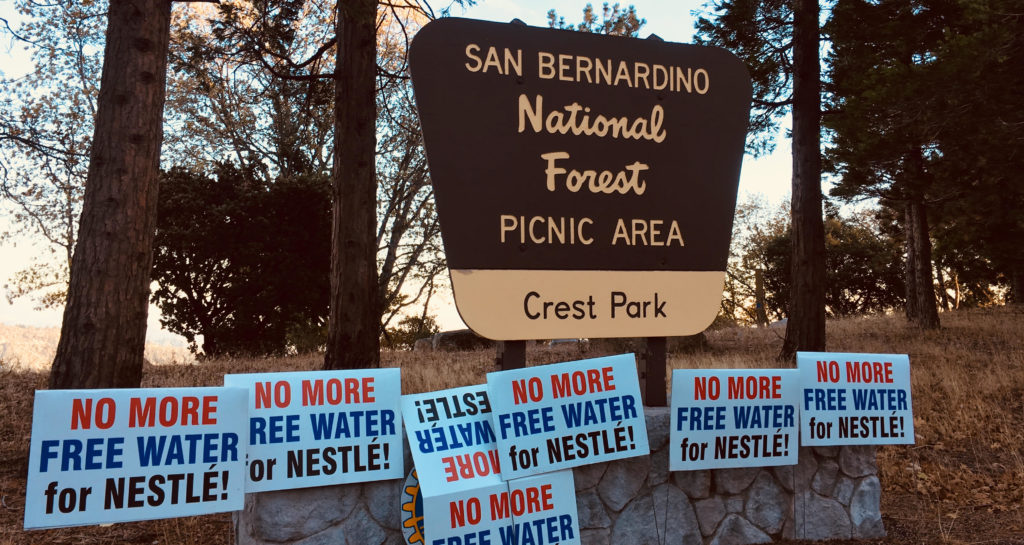
Take Action!
Join our campaigns to Unbottle Water in San Bernardino, the Great Lakes, and beyond!
The Story So Far
In the spring of 2015, media outlets lit up with stories about Nestlé pumping of millions of gallons of water out of Southern California’s San Bernardino National Forest. This was at the height of the worst drought in the state’s history, and award-winning reporting by Ian James of The Desert Sun exposed Nestlé’s exploitation of weak federal oversight. Nestlé and the companies that preceded it have been bottling water from this region for many decades, most recently under the Arrowhead brand. However, Nestle’s permit to operate on forest land expired in 1988. Because the Forest Service never renewed the permit, it wasn’t monitoring the environmental impacts of removing tens of millions of gallons for years on end from the springs.
The Story of Stuff Project travelled to San Bernardino and met with the two retired Forest Service employees that raised the alarm on Nestlé. Steve and Gary, along with a local activist and researcher from the community, Amanda, were featured in our first short documentary, This Land Is Our Land. They tell the story of this multinational corporation’s effort to privatize an essential shared resource, water, and the devastating impacts this bottling operation has had on Strawberry Creek.
On the day of the documentary release, we also filed a lawsuit, along with Courage Campaign and Center for Biological Diversity, against the Forest Service for allowing Nestlé to continue operating in the forest under a permit that expired in 1988. One year after media coverage of Nestlé’s bottling operation began, we appeared in court to defend our lawsuit against the U.S. Forest Service for Nestlé’s expired permit. Without a valid permit we argued that Nestlé had been illegally pumping millions of gallons of water from the forest for decades and requested that the Forest Service revoke Nestlé’s access to this water until a permit and environmental review had been conducted. Nestlé claimed that the U.S. Forest Service has no right to restrict Nestlé’s water removal from the San Bernardino National Forest.
We were joined by an enthusiastic group of about two dozen local supporters who had been leading the way in the fight against Nestlé, and who showed up early on a Monday morning to help us pack the courtroom. Unfortunately, the federal judge denied our request to turn off the spigot on Nestlé’s water bottling operation in the San Bernardino National Forest, ruling for the U.S. Forest Service. We were disappointed but not deterred, and we filed an appeal. While we believe that the court’s decision defied common sense, pressure from The Story of Stuff, our partners, and the community compelled the Forest Service to announce that it had finally begun the process of reviewing Nestlé’s application for a new five-year permit.
Thanks to the media coverage, attention drawn to the issue by our lawsuit, and determination by local activists who submitted complaints, the California State Water Resources Control Board also began investigating whether or not Nestlé could actually claim water rights to the springs in the national forest. Without valid water rights, the corporation would be acting in violation of state law, and the Forest Service cannot issue operating permits if state or local laws are broken.
In 2017, we worked through the appeal of our lawsuit and awaited the Forest Service’s analysis of the environmental impacts from Nestlé’s de-watering of Strawberry Creek.
Meanwhile, Nestlé used its political clout and high powered lawyers to change the conclusion of an investigation by the US Food & Drug Administration (FDA) around the use of the words “spring water” on the labels of its Arrowhead brand of bottled water. This came to light in new documents we received after we sued the FDA to make the investigation public. What these documents make clear is that companies like Nestlé play by a different set of rules than you or me and demonstrate how difficult it is to force accountability when government agencies are filled through a corporate revolving door. You can read the full story here.
Breaking news hit in December when the State Water Resources Control Board released its preliminary report of investigation finding that Nestlé doesn’t have water rights for most of the water it takes out of San Bernardino National Forest.
This report confirmed allegations citizens in the San Bernardino region and The Story of Stuff Project made against Nestlé that the corporation has been taking water from the San Bernardino National Forest to which it has no legal claim. The Water Board directed Nestlé to limit its water take to an annual 8.5 million gallons. Nestlé takes, on average, 62.6 million gallons a year to supply its Arrowhead brand water bottles. To be in compliance with the Board’s conclusion, Nestlé was asked to immediately cease any unauthorized diversions.
However, things didn’t end there. The company challenged these findings and did not comply with the Water Board’s recommendation that it immediately cease any unauthorized diversions.
With the legitimacy that the Water Board’s findings lent to our campaign, we launched and delivered an online petition in 2018 targeted at the Chief of the Forest Service demanding that the agency exert its power to protect our public land and shut down Nestlé’s operation until the question surrounding the validity of its water rights is resolved. We partnered with other organizations including, Food & Water Watch, SumOfUs, Daily Kos, and Corporate Accountability, to spread the word and engage a broader audience. Together, we gathered 65,000 signatures and delivered them, with members of the local community, to the San Bernardino Forest Service Headquarters.
We also settled our 2015 lawsuit against the Forest Service challenging Nestlé’s expired permit. The settlement required the Forest Service to decide whether or not to issue a new permit for the pipeline and Nestlé’s associated activities. The settlement effectively ended a stalemate under which Nestlé continued to operate under its expired permit and has allowed us to move forward in the process of challenging their operation.
As required by our settlement agreement, the Forest Service announced its decision to issue Nestlé a new permit. While this was a frustrating development, the decision memo included several important victories, including new measures to protect and improve the health of the Strawberry Creek ecosystem. Notably, the memo left open the question of Nestlé’s water right, providing an opportunity for the Water Board to make a final decision and implement new enforcement measures. Under this new permit, Nestlé cannot continue to operate without any oversight or analysis from the Forest Service. The corporations old “zombie” permit that expired in 1988 was officially laid to rest.
In the spring of 2019, the Forest Service finalized its Adaptive Management Plan and began to implement a series of studies in order to determine the impact of Nestlé’s water withdrawals in Strawberry Creek. For the first time, the impacts will be recorded, measured, and assessed in order to better plan for the future.
In 2023 alone, Nestlé-successor BlueTriton removed an astounding 104 million gallons of water from our public lands in the San Bernardino National Forest – water that should have been nourishing the forest and providing drinking water to the low-income communities that live below the San Bernardino Mountains. Nearly a year ago, we shared news that California water regulators found BlueTriton had failed to prove that it had a legal right to the tens of millions of gallons of water it was removing annually from the San Bernardino National Forest for bottling. But BlueTriton’s lawyers quickly tied the Water Board decision up in the courts, leaving the decision about the future of Arrowhead Springs in the hands of the U.S. Forest Service.
Over the past year, our team has repeatedly reminded the Forest Service of its legal responsibilities, submitted enforcement petitions, met with federal and state officials, filed public records requests, and more. Then, in June, we provided funding to help a local partner, Save Our Forest Association, sue the Forest Service to ratchet up the pressure even more. That lawsuit has prompted a BIG decision – the Forest Service has ordered BlueTriton to turn off the tap once and for all, ending a decades-long theft of public water to which it had no right!
In a July letter denying BlueTriton’s request for a new permit, the Forest Service ordered the bottling giant to plug its boreholes, turn over the keys to its infrastructure, and submit a plan for decommissioning its pipeline! The Forest Service invited local advocates to meet to develop a plan for the restoration of Strawberry Creek, which has been dewatered by BlueTriton and its predecessors for decades.
This is a huge win!
But BlueTriton isn’t going down without a fight, so we’ve got to keep the pressure on. Together, we’ve come a long way. Every member of the Story of Stuff Community should feel enormous pride in this accomplishment – you powered this campaign for nearly a decade! Now, let’s fund this grassroots fightback against BlueTriton!
Help us raise $10,000 for Save Our Forest Association and other local partners on the ground.
